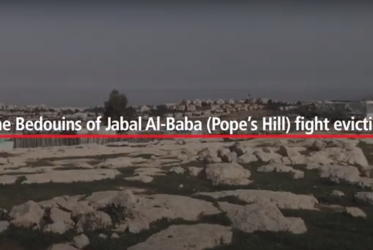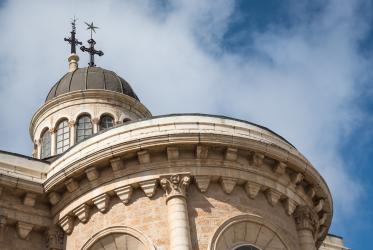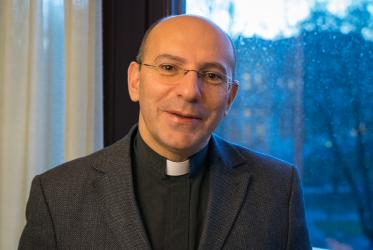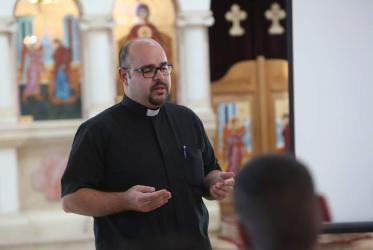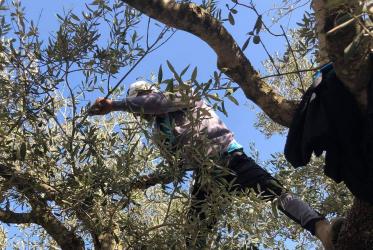Displaying 1 - 15 of 15
As Bethlehem prepares for Christmas, ‘it’s all about community’
08 December 2022
In Lebanon, “without peace there is no justice”
21 July 2021
Video: Freedom to worship - Easter Initiative 2021
01 April 2021
Video: Khan Al Ahmar - Easter Initiative 2021
01 April 2021
Palestinian Christian peace worker yearns for courageous leaders
10 December 2020
A hopeful, but not optimistic Palestinian ecumenist
09 December 2020
Fr Jamal Khader: “We need to keep hope alive” in Palestine
25 November 2020
“Your life is in peace when you collect the olives"
29 October 2020






